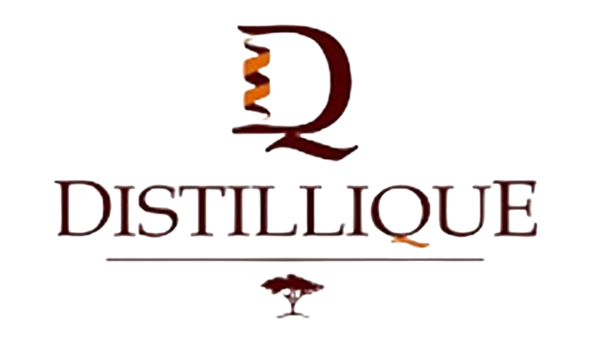Essential Steps to Follow When Opening a Craft Distillery: An Overview
Annelize SteensmaEmbarking on the journey of starting a craft distillery is an exciting yet challenging venture that demands a great deal of preparation and planning. The process involves a series of crucial steps that must be followed to turn your dream into a reality. To help you get started, we have outlined the essential steps that will guide you through the process of opening a craft distillery.
To ensure a comprehensive knowledge of the full distillery operations, we recommend completing the C10 comprehensive distillation course and the B1 craft distillery business planning workshop. However, if you only require an overview of the legal requirements for starting a craft distillery and have not completed the B1 workshop, we suggest reading our articles on our website, including "How do I get a license for a craft distillery in South-Africa," "What do I need to register for with SARS as a craft distillery?," and "As a craft distillery, how do I work with the department of Agriculture?"
To initiate the distillery equipment quotation process, request the “distillery questionnaire” from Distillique. This can be done by sending an email to sales@distillique.co.za. Once we have provided you with an initial quote, we can schedule a meeting either at our premises or via a Video Conferencing Platform to discuss the quoted items and make any necessary changes.
We recommend getting in contact with a qualified liquor lawyer who has a proven track record of micro liquor manufacturing license applications. If you require guidance in selecting a liquor lawyer, we can provide you the contact details of our preferred lawyers. They will help you through the process of obtaining all the documentation required for the application of a liquor license.
It is important that an appropriate premises is identified if you have not already done so. It should be noted that distilleries are strictly prohibited in residential areas and may only be established in areas zoned for light industrial or agricultural purposes (excluding agricultural holdings or agricultural residential). In the province of KwaZulu-Natal, mixed core use zoning is occasionally accepted. You will need to get a Zoning certificate from your local municipality confirming that the premises is suitable for the required liquor license.
To allow us to draw up the distillery layout plans, please have plans drawn up of your building and indicating all dimensions, smoking or non-smoking areas, doors, windows as well as fire escape routes, fire equipment, etc. Once we have received the building plans, we can start with the distillery layout. When the full plan is complete, submit them to the Metropolitan Emergency Management Services for approval. At the same time, submit these same plans, along with other required paperwork (to be confirmed by your liquor lawyers), to the Provincial liquor board.
In addition, please register your business and initiate the SARS application process for VAT and Excise registration. As with your Liquor License Application Process, is not limited to merely one single application. You will in fact be registering for four different Registrations (and this is excluding Income Tax, PAYE, SDL, etc.). This includes VAT, VMP, VMS and Bond.
Initiate the process of establishing your brand and marketing strategy by undertaking essential activities such as designing a logo and label, setting up social media accounts, and creating a website. Focus on building a strong clientele to ensure that when the day comes that you are allowed to start selling your products, you already have a well-established market to capitalize upon.
The provincial liquor board and SARS will arrange several on-site inspections of the premises, including building, health and safety, fire, police, and excise. These inspections must be passed, and you should be issued with letters of compliance before the license approval process can proceed.
Once you have developed your final product, submit samples of it in its final packaged and labelled form along with a copy of a laboratory analysis to the Department of Agriculture, Forestry and Fisheries in Stellenbosch for approval. The laboratory analysis can be done through Integral Laboratories or Vinlab. Once DAFF has evaluated your product and it complies with the standards, they will issue you with a letter of compliance.
Once you have acquired all the necessary documentation, you will send it to your liquor lawyers so that they can be submitted for the final license application.
Once you have received your license, the next step is the apply for an A-number. This is again done through DAFF. Once you have received your A-number, you can incorporate it into your final label.
The steps above only serves as a guide on what is required when setting up a craft distillery. To get a more in dept explanation and even more detailed steps, complete the B1 craft distillery business planning workshop.

2 comments
Hi Cecil. Please see our three-part series about distilling at home in South Africa.
https://distillique.co.za/blogs/default-blog/how-do-i-legally-distill-at-home-in-south-africa?pos=9&_sid=f3ee79b7c&ss=r
https://distillique.co.za/blogs/default-blog/how-do-i-legally-distill-at-home-in-south-africa-part-2-registration?pos=10&_sid=f3ee79b7c&ss=r
https://distillique.co.za/blogs/default-blog/how-do-i-legally-distill-at-home-in-south-africa-part-3-record-keeping?pos=1&_sid=20f62c42c&ss=r
Hi, please clarify the situation where I am pursuing this as a hobby and for no commercial reasons whatsoever